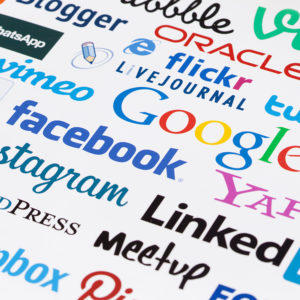The closing moments of the Trump administration are an exercise in policy nihilism, a salting of the earth on so many fronts — Steven Mnuchin’s edict blocking the Fed from extending credit to businesses and state and local governments; opening the Arctic Wildlife Refuge to drilling; precipitous and histrionic troop withdrawals from the front lines against terror. These incidents tend to define what Trump’s opponents — and the new administration— will be “for.” Reversing these thrusts becomes an agenda unto itself.
But progressives and the Biden administration need to be careful in applying that perspective. Because while Trump’s charges against Big Tech — that it seeks to squelch conservative voices — are brazenly mistaken, the new administration must not race to Big Tech’s defense, for the sake of both our economy and democracy.
Both Trump’s confused allegations and the legitimate problems Big Tech creates are drawn from the same well. The internet has moved past the wistful, utopian vision it would be a platform for interactions among people of goodwill, deepening our democracy and expanding opportunity. It is cruel to recall that vision while seeing what the internet has become — a province governed by a handful of monopolies with economic power not seen since the Standard Oil and US Steel Goliaths of a century ago.
For decades, the progressive community has focused its ire on Internet Service Providers, worried they would “curate” our digital experiences and make the internet their preserve. While they tilted at this windmill, Google, Facebook, Amazon and their subsidiaries have done exactly what the progressives feared the ISPs would do (even as they sometimes financed the campaign against the providers). Now, news reports suggest Google’s former CEO, Eric Schmidt, is being considered for a Biden administration post — there is room to wonder how the incoming administration will address these real dangers lie.
Long touted as job creators, the Big Tech monopolies are turning into job killers by squelching competition and managing the market for your time and attention in ways that serve their ends. The “free market” we imagined the internet would bring has been commandeered by these giants, who demand tribute if a business is to market their wares or services through their networks.
Long touted as a vehicle for spreading a citizen’s democracy, they now actively feed the nation’s bifurcation into two warring sub-nations, feeding each side what it wants to hear, often at the paid behest of advertisers. Facebook may be grappling internally with untruthful, vicious material, but it has enabled that material by allowing it to be delivered in a targeted fashion for pay.
Long touted as a way to create opportunity, the Big Tech sites are, in fact, frequently squeezing it. Local newspapers are dying in part because their material can be scraped from their publications and used to power Facebook feeds and Google searches. It may be delightful to find any song or prose on Google or its vassal, YouTube, but for authors, songwriters and other content creators, it is outright theft.
And long touted — and protected — as a “neutral” platform for the interaction of its citizenry, Big Tech’s considerable immunity has been extended to material that is untruthful, disgusting or criminal, from pedophilia to terrorist propaganda to election interference.
Much of this misfeasance is shielded by overbroad “safe harbors” in copyright and telecom law that allow the platforms to shirk the responsibility inherent in their current role. When the internet was young, open and competitive, these safe harbors made some sense. But now that the web is dominated by well-heeled, monopolistic giants, that view won’t wash.
The new administration must continue and empower the effort to rein in these unwarranted harbors, most immediately by keeping them out of trade agreements so Congress’s freedom to revisit them remains unfettered. It must resist the siren call of a new generation of Big Tech “Best and the Brightest” in filling key posts at agencies like the Commerce Department, U.S. Trade Representative, and the U.S. Patent Office. The Biden administration needs personnel not beholden to Big Tech’s corrosive presence.
The idea that Big Tech’s supposed squelching of conservative voices is its greatest malfeasance is a partisan effort to facilitate even more disinformation right here at home. But perhaps the worst aspect of the allegation is that it detracts attention from the real issues these monopolies pose. The new administration must keep itself at arm’s length from these entities and make addressing the real problems of market dominance and lack of meaningful accountability a central focus of technology and economic policy.

